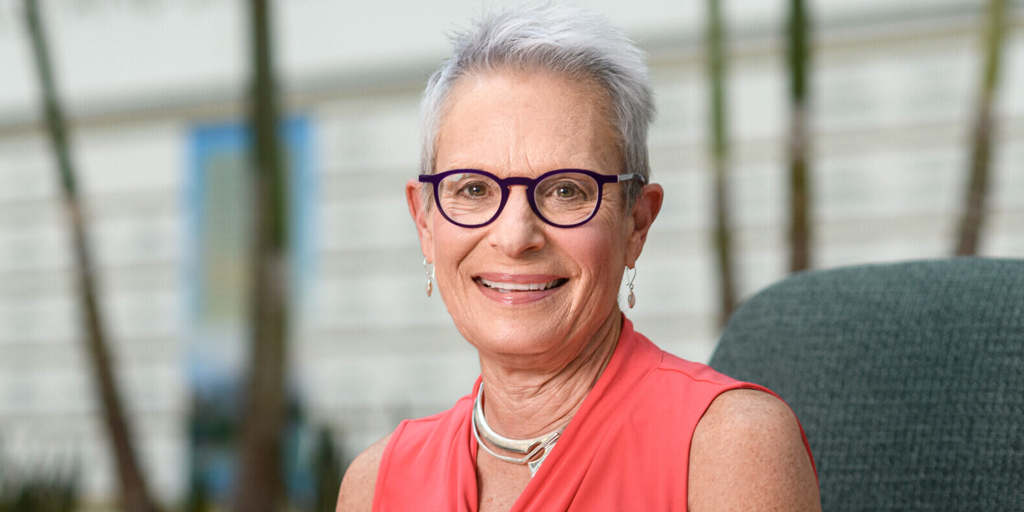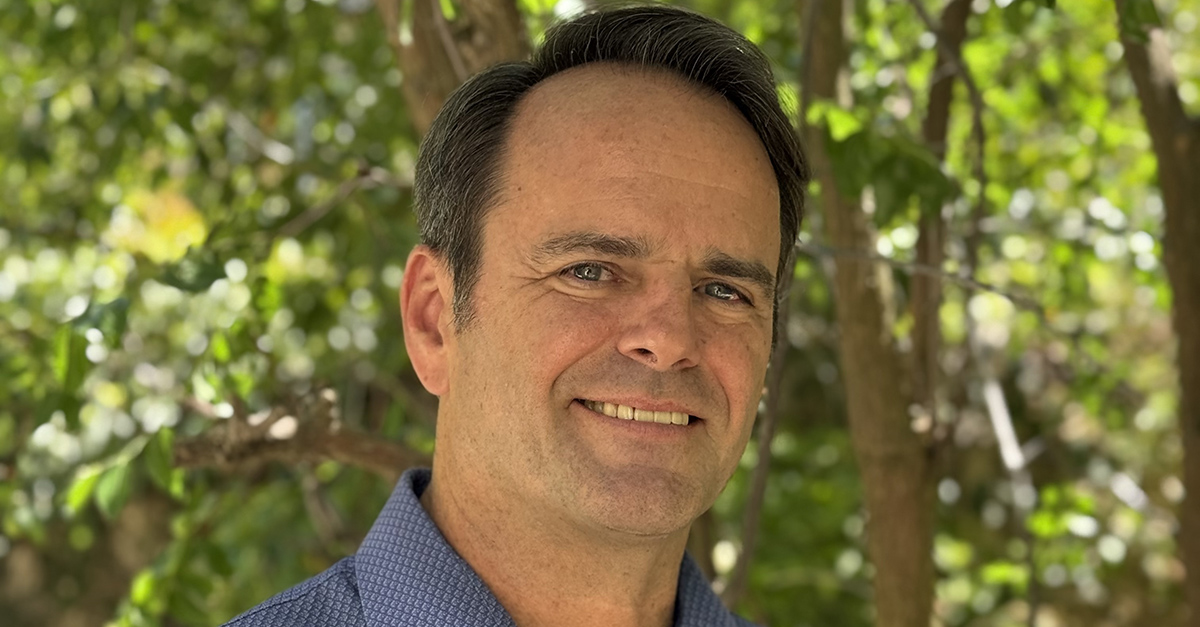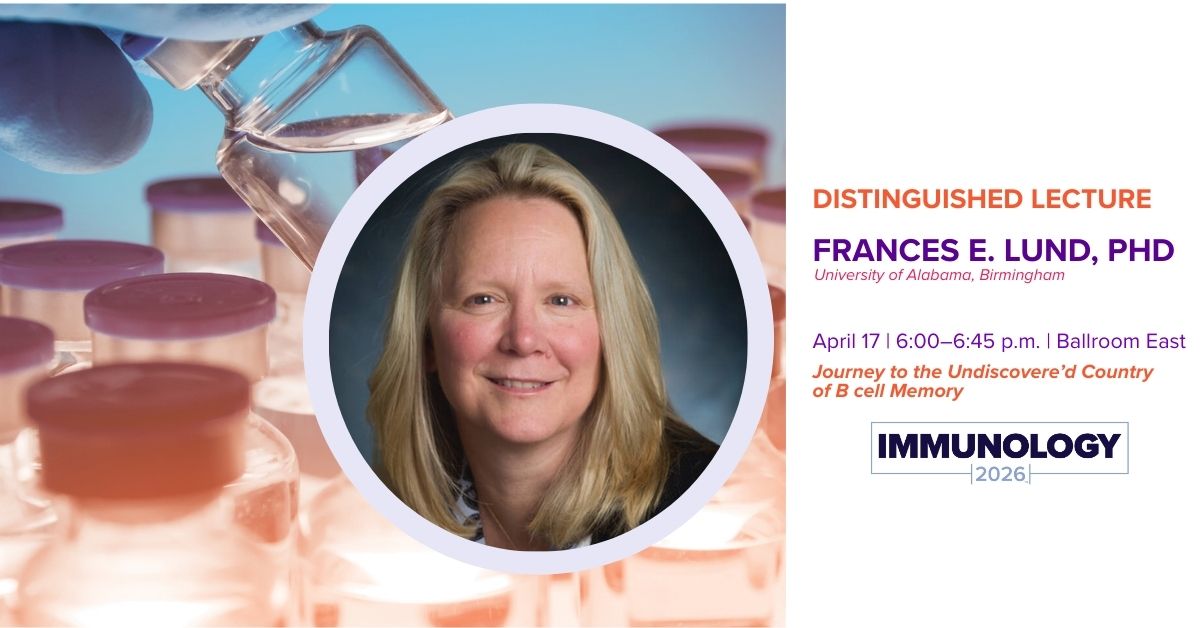
On January 30, AAI announced the recipients of the 2025 AAI Career Awards, including the Lifetime Achievement award bestowed upon Leslie Berg, Ph.D., DFAAI. Dr. Berg’s extraordinary history of service to AAI includes serving as president (2011–12) and as the first co-Editor-in-Chief of ImmunoHorizons with Michael S. Krangel (2017–19). She was awarded the AAI Distinguished Service Award in 2006 and the AAI-PharMingen Investigator Award in 2001 and was elected a Distinguished Fellow of AAI in 2020.
Dr. Berg says that being recognized with the Lifetime Achievement Award means a great deal to her because “it’s a combination of contributions to the association and contributions to the field. All of us are scientists at heart. We want to make a contribution to knowledge in our field, and that is the part that really feels the best.”
Early start in science
Leslie Berg grew up in upstate New York and then attended middle school and high school in Beverly Hills, California, where she first got involved in biomedical science. During a summer break, she volunteered in a neurobiology lab at UCLA. She attended Harvard for her undergraduate education and was captivated by the emerging field of molecular biology, in which she could combine theoretical models and wet-bench experimentation.
Berg earned her Ph.D. at Berkeley, studying DNA replication in papillomaviruses. She moved into immunology during her postdoc in the laboratory of Mark Davis at Stanford. Davis had just recently cloned the genes for the T cell receptor, and Berg remembers joining a full lab of over twenty people thrilled to be working there: “It was chaotic, and it was a blast.”
Creating opportunities
Following her postdoc, Berg returned to Harvard as a professor, where she began working to clone tyrosine kinase genes. She described her satisfaction with this research: “I guess if your definition of things being important is ‘did they end up in textbooks,’ some of the stuff we did ends up in textbooks, so that’s going to stand the test of time.” Today, Berg is one of the authors of Janeway’s Immunobiology, the gold standard immunology textbook for students. She enjoys the challenge of identifying which emerging research “explains fundamental aspects of the immune system” and ought to be included in each new edition.
After nearly thirty years in Massachusetts, first at Harvard and then at the University of Massachusetts Medical School, Berg made the move to the University of Colorado Anschutz School of Medicine, where she is chair of the Department of Immunology & Microbiology. To help bring the two groups of scientists together, she made it a goal to “recruit junior faculty who are not easily pigeonholed as either microbiologists or immunologists, but people who work at the interface.” This has resulted in a faculty with broad interest in host defense at mucosal surfaces, “where bugs, viruses and immunity come together,” and has fostered research in less-commonly studied immunological interactions.
Launching a journal
Having served on the AAI Council and as president 2011–12, Berg took on a new role as an inaugural co-Editor-in-Chief of ImmunoHorizons, the open-access journal AAI launched in 2017. Recalling the challenge and shock she experienced in the transition from post-doc to junior faculty, trying to publish research without an established scholar’s name attached, she began inviting junior scholars to write review articles. ImmunoHorizons provides a venue for younger scientists to publish important immunology research “where the conclusions are not as exciting as they hoped” but still derived from solid, well-controlled experimentation. “That work should be published,” says Berg, “so that was really an appealing thing.”
Asked what big advance in immunology she’d most like to see, Berg said that right now, the most important thing is “a better understanding by the general public of the importance of studying immunology and other biomedical fields.” She recalls that her mother, as a child, was not allowed to go swimming in New York city because of the fear of polio. Without that sort of fear, she says, people can “create their own reality” about how disease works and how to prevent or treat it. She believes “we all need to do a better job communicating what we do to the general public.”
AAI president Stephen Jameson will present the Lifetime Achievement Award to Dr. Berg at IMMUNOLOGY2025™ in Honolulu, on Saturday, May 3, at 4:00 pm.




